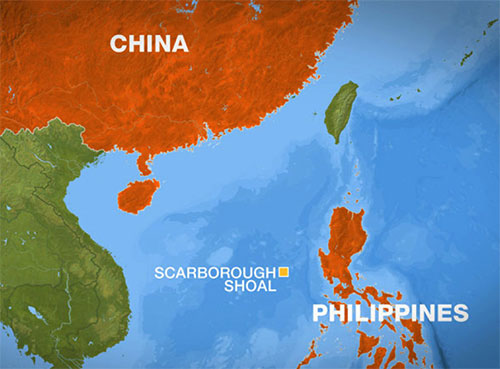
In a Decision dated July 24, 2015 released last month, the Court of Appeals dismissed Airfreight 2100, Inc.’s (“A21”) appeal from the National Capital Regional Trial Court’s resolution dismissing its petition, which sought to nullify PDRC’s rejection of A21’s challenge to the appointment of Atty. Salvador Panga, Jr. as part of a three-man arbitration panel.
The arbitration panel was appointed pursuant to a Submission Agreement dated May 11, 2011 between A21 and Federal Express Corporation (“FedEx”) to resolve the pending contract disputes between them. The Agreement stipulated that the parties’ dispute would be referred to arbitration under PDRC’s Arbitration Rules.
Following the Agreement, A21 appointed its nominee arbitrator while FedEx appointed Atty. Panga as arbitrator. The two party-appointed arbitrators then appointed PDRC President Gregorio Navarro as third and presiding arbitrator. Apprehensive about the independence of FedEx’s appointed arbitrator, A21 challenged Atty. Panga, who rejected it. When the challenge was renewed with PDRC, it also rejected the challenge to Atty. Panga.
A21 then filed a petition for certiorari with the trial court to nullif y PDRC’s acton on the ground of grave abuse of discretion. In its Resolution dated August 24, 2012, however, the trial court dismissed A21’s petition on the ground of lack of jurisdiction because there was no law allowing PDRC to exercise quasi-judicial functions even in its private capacity; hence, the first requisite for the issuance of a writ of certiorari was missing.
On appeal, the Court of Appeals agreed with the trial court’s dismissal of A21’s petition but on a different ground. According to the appellate court, A21’s correct remedy was to renew its challenge before the trial court pursuant to Section 11 of Republic Act No. 876 (1953), otherwise known as the “Arbitration Law,” and Rule 7.2 of the Special Rules of Court on Alternative Dispute Resolution (ADR). Certiorari was improper because A21 had a speedy and adequate remedy by renewing its challenge. A21 has moved for reconsideration of the appellate court’s decision.
china expert talks at Pdrc annual meeting

Chito Sta. Romana, a renowned expert on China, was the guest speaker at the PDRC general membership meeting on August 24, 2015. Mr. Sta. Romana shared his insights in a lecture on “Understanding China: Its Position on the West Philippine Sea Arbitration Case.” His talk was a synthesis of what he had observed and understood about China after living there for three decades.
On the Philippine-China arbitration, Mr. Sta. Romana explained that the issue on the jurisdiction of the international tribunal established under the United Nations Convention on the Law of the Sea (UNCLOS) remains pending. In response to the Philippine claim, China issued a position paper stating that it would not accept nor participate in the arbitration under the UNCLOS.
The international arbitral tribunal requested the Philippines to respond to the position of China on the issue of jurisdiction. Under Article 9 of Annex VII to UNCLOS, “Absence of a party or failure of a party to defend its case shall not constitute a bar to the proceedings. Before making its award, the arbitral tribunal must satisfy itself not only that it has jurisdiction over the dispute but also that the claim is well founded in fact and in law.”
As contained in the position paper issued by China,(1) the essence of the Philippine claim has to do with territorial sovereignty, which is beyond the scope of UNCLOS and does not involve the interpretation or application of UNCLOS; (2) the issues raised in the arbitration have to do with the process of maritime delimitation and fall within the scope of China’s 2006 declaration excluding disputes concerning maritime delimitation from compulsory arbitration; and (3) the Philippines unilaterally initiated the arbitration and breached its obligation under international law since China and the Philippines have agreed to settle disputes through negotiation.
Mr. Sta. Romana explained that what the Philippines sought was not a ruling on sovereignty or maritime delimitation but a clarification of maritime entitlements under UNCLOS, since the status of disputed features will be the same whoever owns them.
He further clarified that the Philippines was not seeking from the arbitral tribunal (1) a resolution of sovereignty issue over the disputed islands; in other words, the territorial dispute would continue for some time; and (2) the delimitation of maritime boundaries or exclusive economic zone (EEZ) but a clarification of maritime entitlements. The claims excluded by China from arbitration in its 2006 declaration were boundary delimitations, historic basis of titles as well as military and law enforcement activities.
Mr. Sta. Romana said that the Philippines wanted the international arbitral tribunal to declare that (1) China’s claims based on the nine-dash line theory was contrary to UNCLOS and invalid under international law; (2) China’s occupation of the four submerged features was unlawful; and (3) Scarborough Shoal and three other reefs that China occupied as “rocks” were entitled only to a 12-mile territorial sea.
